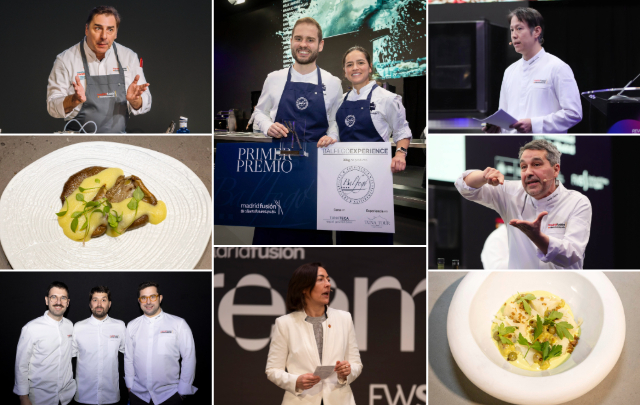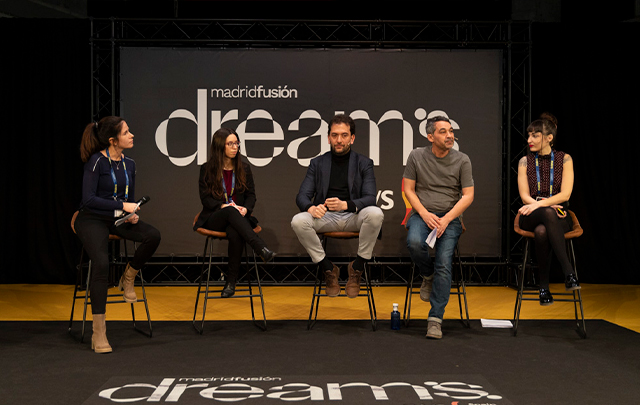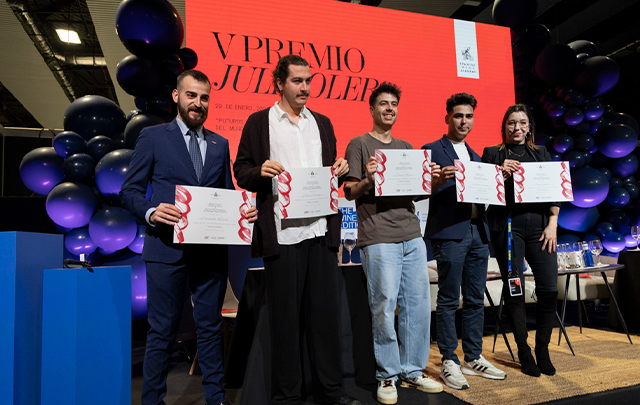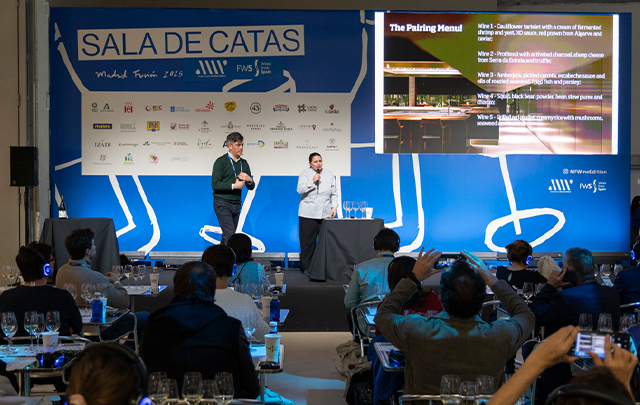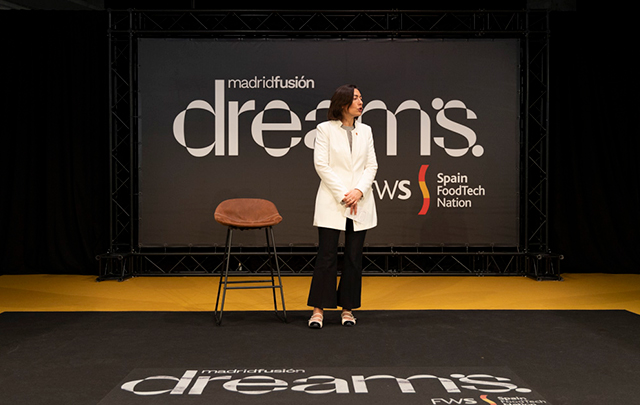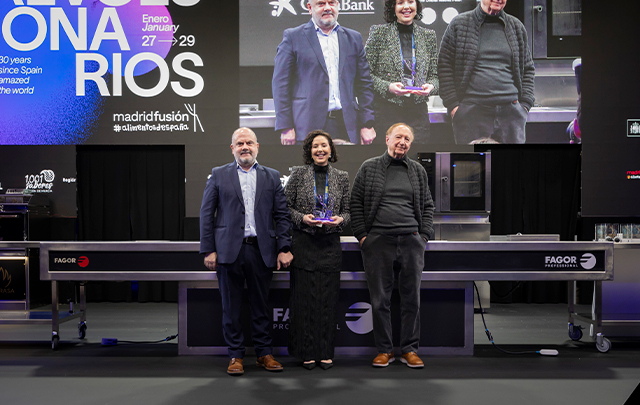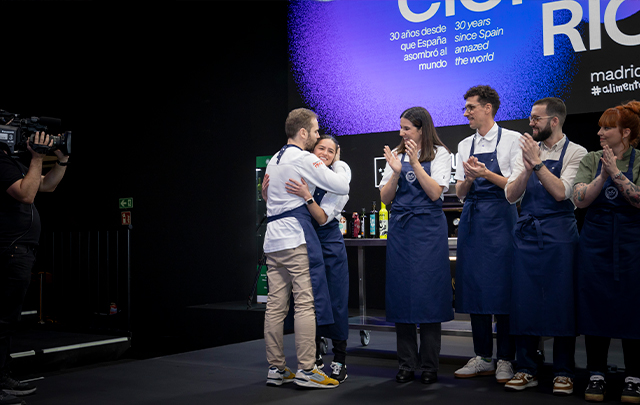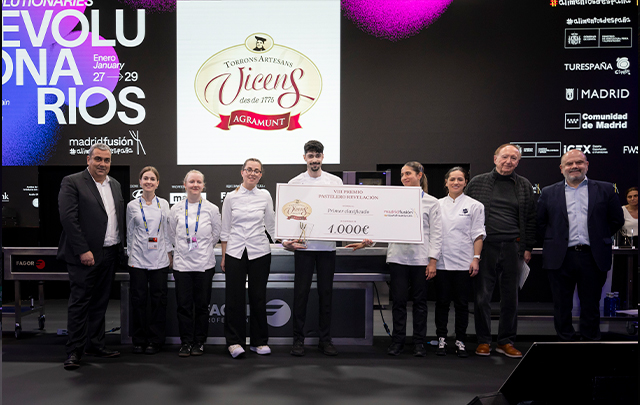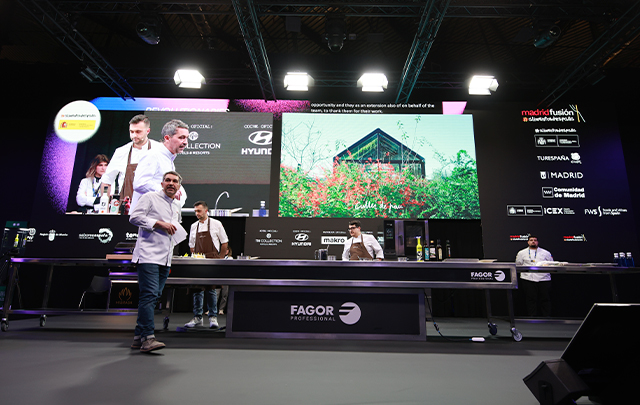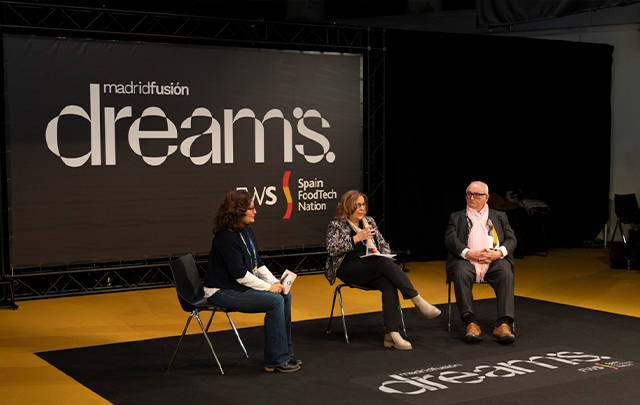News
"We are savages, but not peasants", four stories of young rural chefs
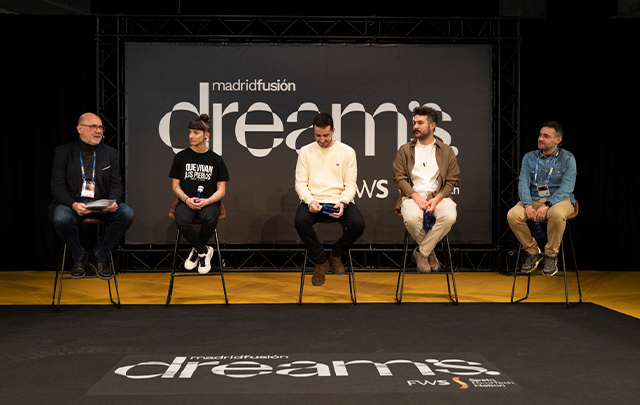
The difficulties faced by those who open a restaurant in depopulated Spain are numerous, until quality is rewarded by a stroke of luck. The chefs, all in their thirties, talk about their experiences
Four young chefs with Michelin-starred restaurants and a loyal clientele tell the story of how they struggled to open their establishments in rural areas (Huesca, Cáceres, Asturias and Jaén), faced a lack of understanding from the people around them and racked up huge bills, in the talk 'The prodigal sons of rural cuisine' at Madrid Fusion.
Iris Jordán. 31 years old. Restaurant Ansils. Anciles, Huesca
Life brought me to Madrid, the city scared me. I left the village because you couldn't study there after the age of 16. I always knew I wanted to be a cook, so I returned to the village to help my grandmother, who made stews and scrambled eggs. She was going to retire in two years. So, I wondered why I had left. But I wanted to do more things, and that led me to discover what I wanted. I wanted my territory. I began to research the culture that was being lost, I interviewed the elders, I went to look for the plants and learn about them. I found my way without looking for it. When we did the project, we reclaimed my territory, where tourism is destroying what was my village, with only 17 inhabitants, before a ski resort was built.
The road is not easy and there are many stones, but you learn how to avoid them. In my case, we made a generational change. My grandmother was a pioneer in this country, and people came to eat her food. When I changed them, people didn't like it. But if I had continued with my grandmother's recipes, they wouldn't have liked it either, because they are not the same hands. The hardest moment was when we took out the beef to be a gastronomic restaurant. 90% of the people came to eat meat, and they got up from the tables. They didn't dare try new dishes. Seeing people get up and leave is one of the worst things in life. We thought we wouldn't be able to do our kind of business. My brother, who supported me and put himself in front of customers as a great act of love, and I gave it one more season to see if we could make it. An article by a food critic made it fill up.
We are wild and proud of it, but we are not uncivilized. Now we have all the technology and an enviable quality of life.
Xune Andrade, 37 years old. Monte Restaurant. San Feliz, Asturias
I've been working in the restaurant business since I was 15, when I combined my studies with bar work. I started studying cooking and after training in different restaurants, I ended up in Madrid for seven years, working in high-volume Japanese and French establishments. I understood different gastronomic cultures and the act of cooking. But I'm very Asturian, very attached to my region and my people, and I wanted to return home to put down roots. When I was 28, I started looking for a place and a way to return: savings, income, risk... I looked for a place in the countryside, although I was advised to go to the city. Oviedo or Gijón. I found a "chigre" (cider house) in a village of 22 inhabitants. I decided to open this project as my own business and to find myself and be more connected with the Asturian culture and the local people.
We've been open for five years now. I involved the people around me in painting, making a table. I wanted everything to be very personal. It's a very young project, in the rural mountains of Asturias, where I have a lifestyle that I was running away from in Madrid. It nourishes me professionally and allows me to be in contact with nature and the seasons in an organic way. I'm lucky.
But at the beginning, the farmers and hunters who gathered there didn't understand the guy who came from Madrid, and in that environment they told me that I would make mistakes, that I would be beaten up. Those were difficult moments. There was one of us in the dining room and another in the kitchen. We added a lot of zeros. But in August, a food critic opened my eyes to the customer profile, not just the local one. We started again. And we got the Michelin star, and suddenly all the comments from people around us changed radically. They were inundated with reservations. Now we have problems, but not difficulties.
Juan Carlos García. 31 years old. Vandelvira, Baeza, Jaén
I'm from Anoeta, I grew up there. I was born a cook, in a family of hoteliers. I studied like any other kid and when it was time to decide what to do at 16, I made the right choice. I was passionate about the sensitivity with which people work in the kitchen. It's an act of love and generosity. Of sharing. Mine is a family project. I have taken steps in different places. San Sebastian, Barcelona, Tokyo. But I always wanted to return home, I felt like it. I was afraid, and the pandemic accelerated everything. Both personally and economically, I took my family with me. We pushed forward. It worked until it worked. Now we have evolved. There are over 25 of us in the restaurant. We make a direct and apparently simple, but complex cuisine. We cook Jaén from our own point of view. Jaén has a lot to teach. It depends on the olive groves, it has a gastronomy that depends on the land. We are survivors. We are what we are. When we were awarded the Michelin star, I thought it was sad that an outside company had to come and tell my neighbor that I was good.
They called us crazy, that I was a disgrace to my family, that I should go back to my home. But you know what you want to do, even if it creates an inner fear and an enormous sense of responsibility. We are a very young generation, and we feel part of the sense of gastronomic belonging that Jaén has begun to have, and now we are reaping the direct rewards. How long will it last? We hope centuries.
Alejandro Hernández. 38 years old. Restaurant Versátil. Zarza de Granadilla, Cáceres
I didn't like studying and I fell in love with cooking. I went to Berasategui's house in the Basque Country and cooking seduced me, it captured me. But being away from home, alone, I wanted to return and a project was born with my brothers, so we returned to the village to open a restaurant, an art gallery, a gastrobar. The client gave us the opportunity by encouraging us. Opening in an area without much gastronomic visibility, in a town of 1,800 inhabitants, was the role we had to play, with all that culture, confidence and roots. In 2021, we received a Michelin star and are now the second largest business in town with 18 employees. It wasn't very touristy and now on weekends there are no more country houses. It's full.
I'm happy to go back to the countryside with my family, to be surrounded by these producers that those of us from the city don't know. Being humble fills you up inside. It is a great satisfaction. And you learn more from your mistakes than from your successes. The first day we opened, no one passed by on the street. That fear in your body makes you go to bed knowing that you have to earn everything, work for it. Nothing comes for free. We have a culture of sacrifice, of hard work. We fight and struggle.
In the restaurant we have a sign that says we are from the village. We defend this culture and we want to share this rural life.

